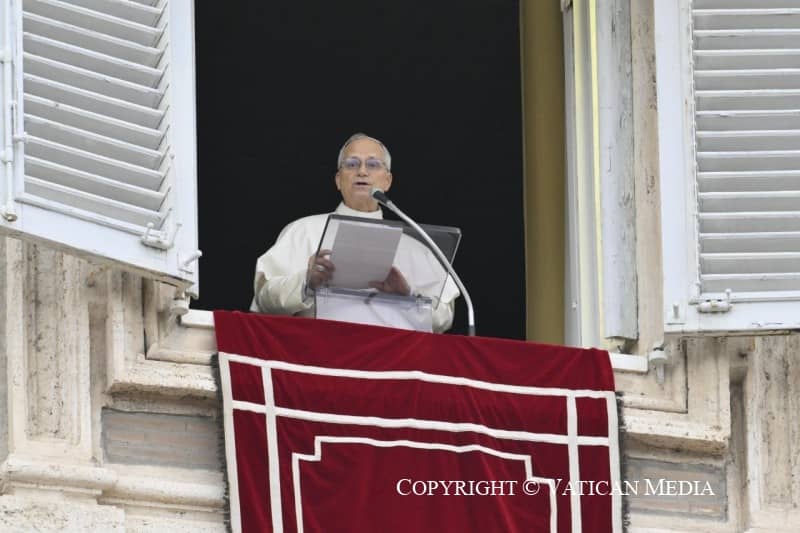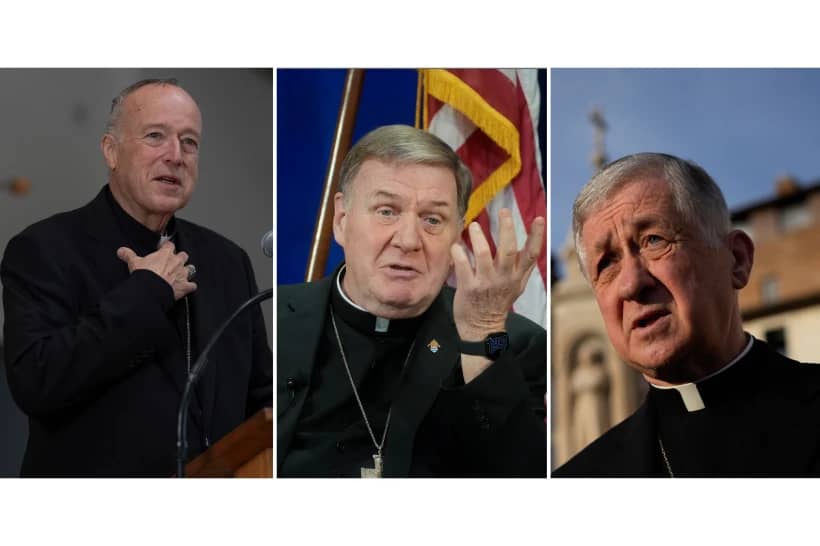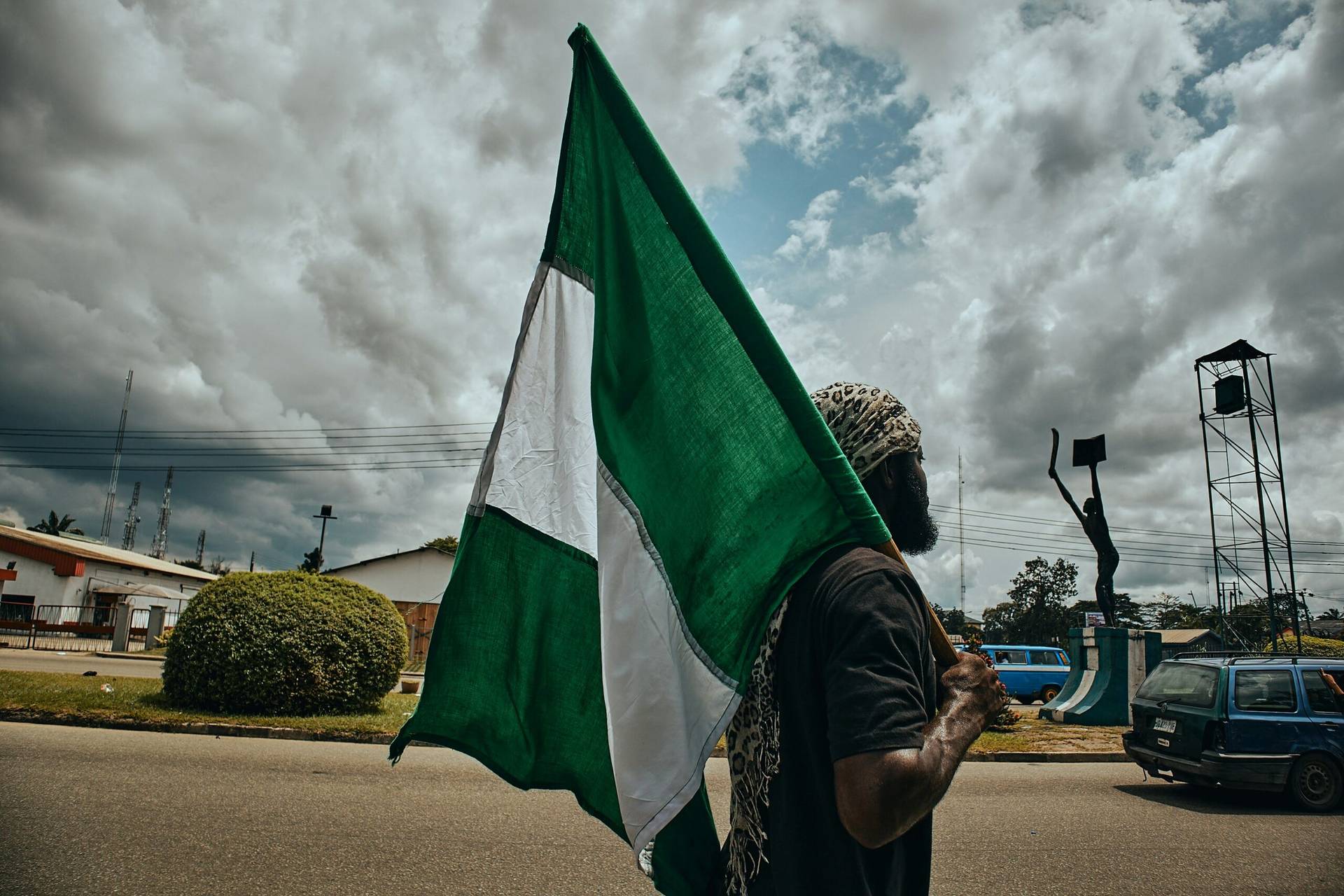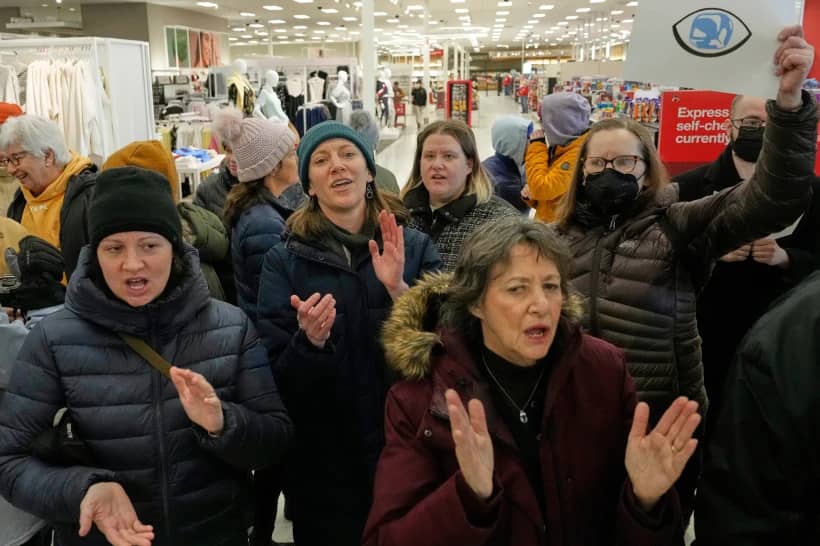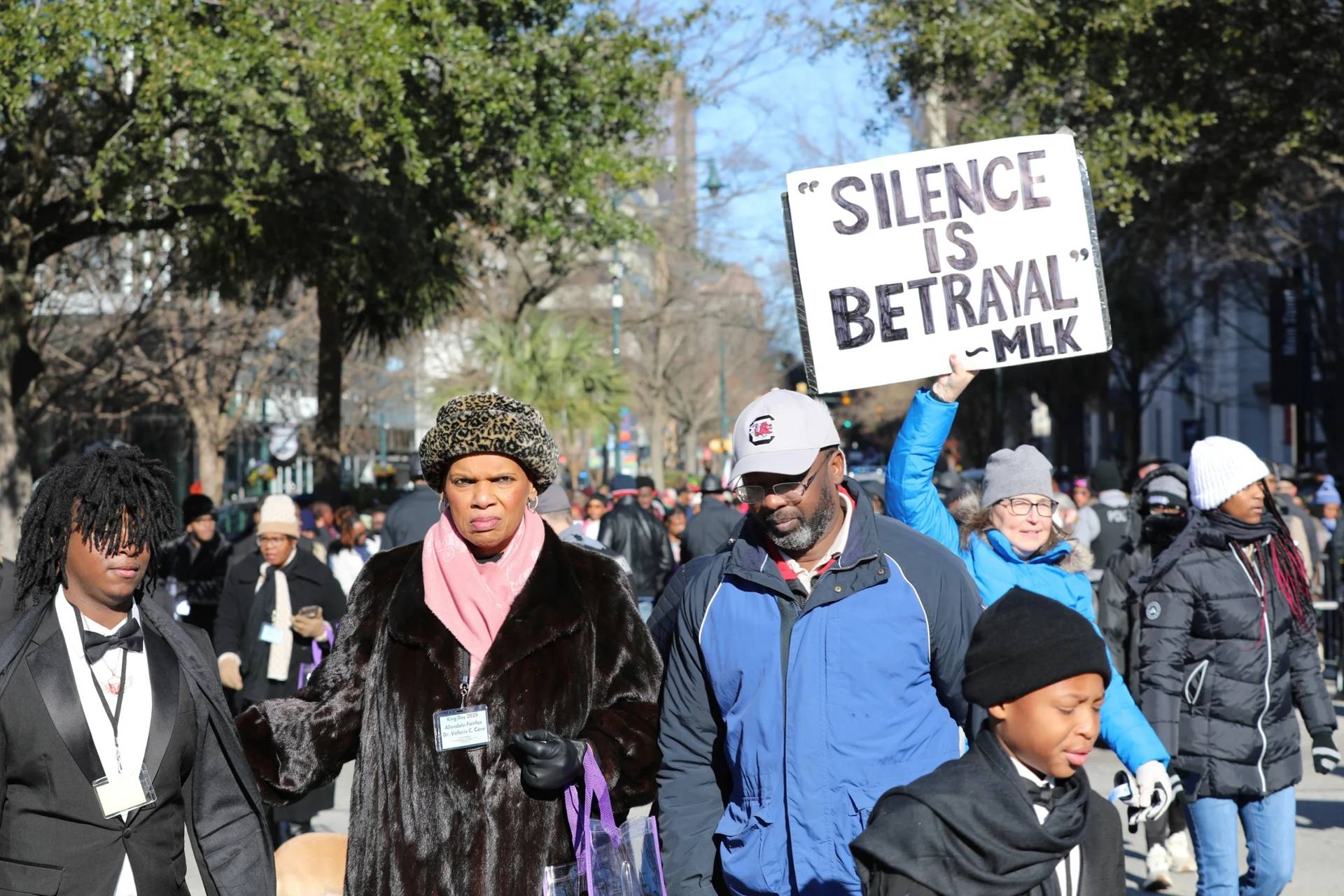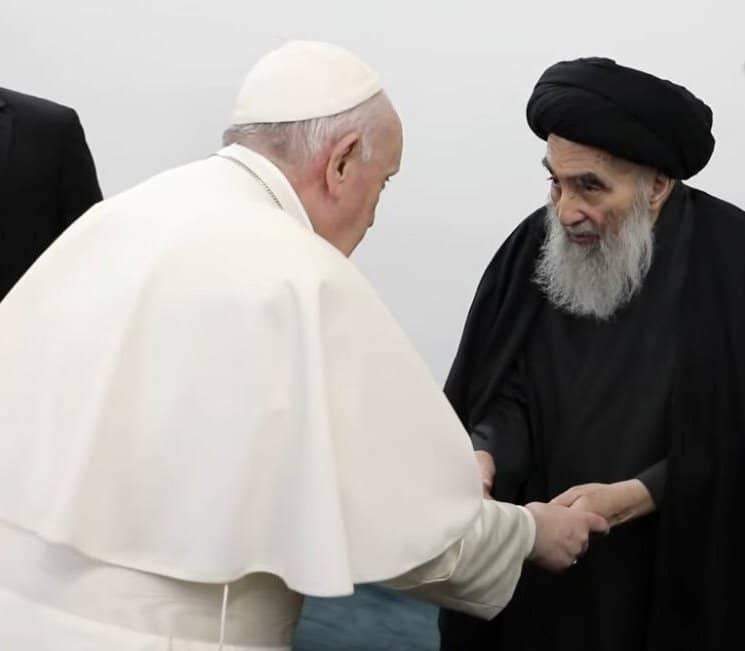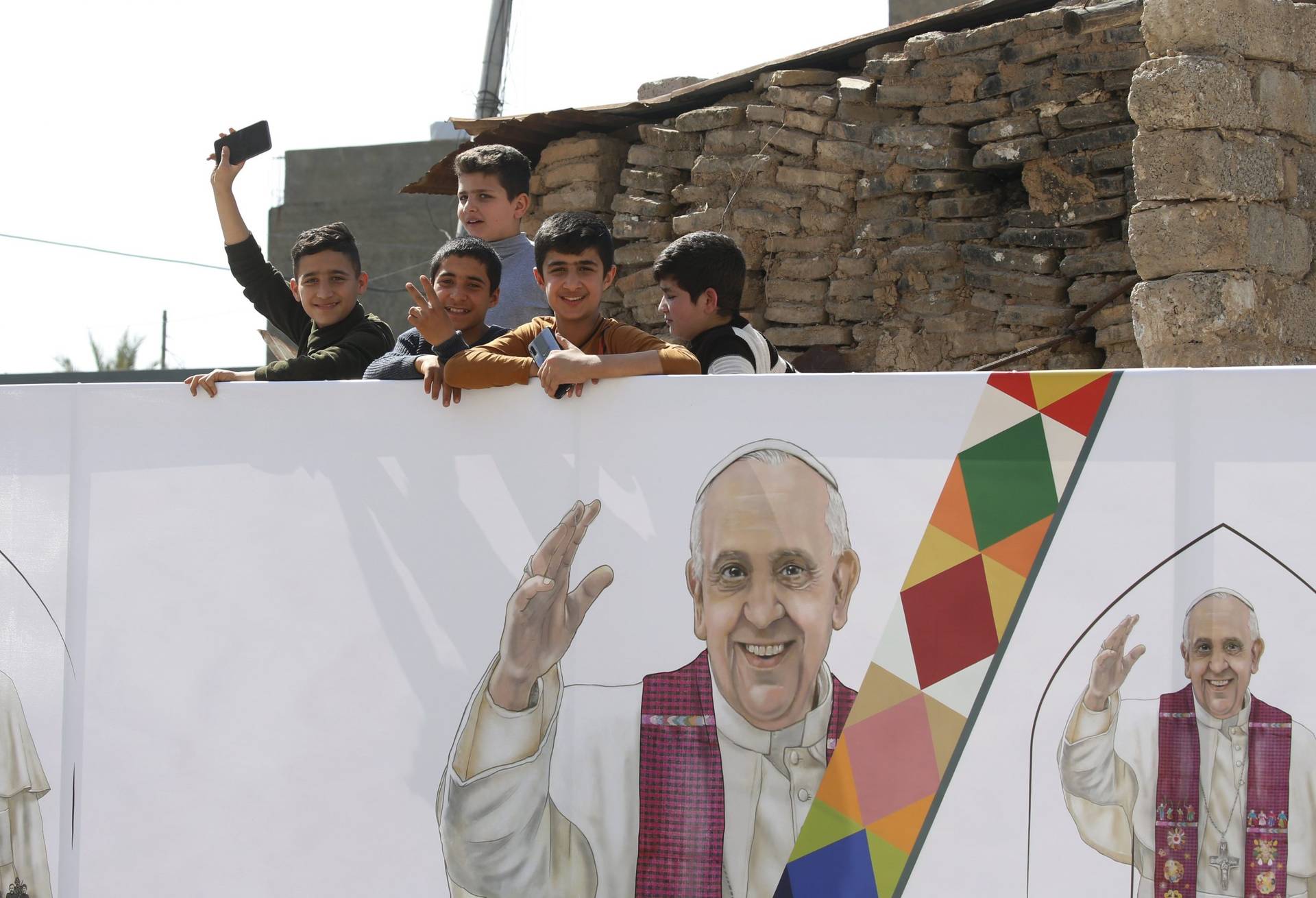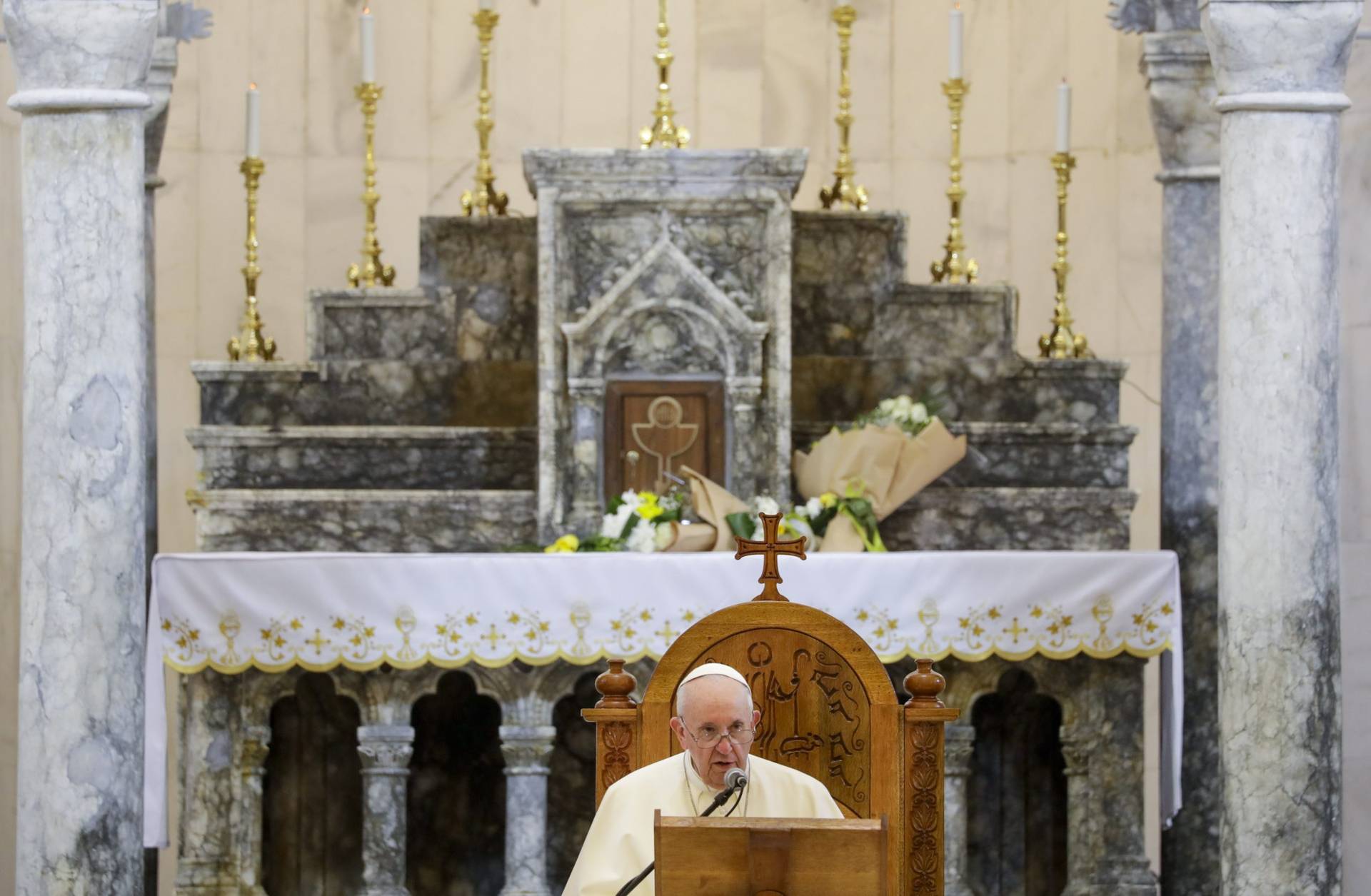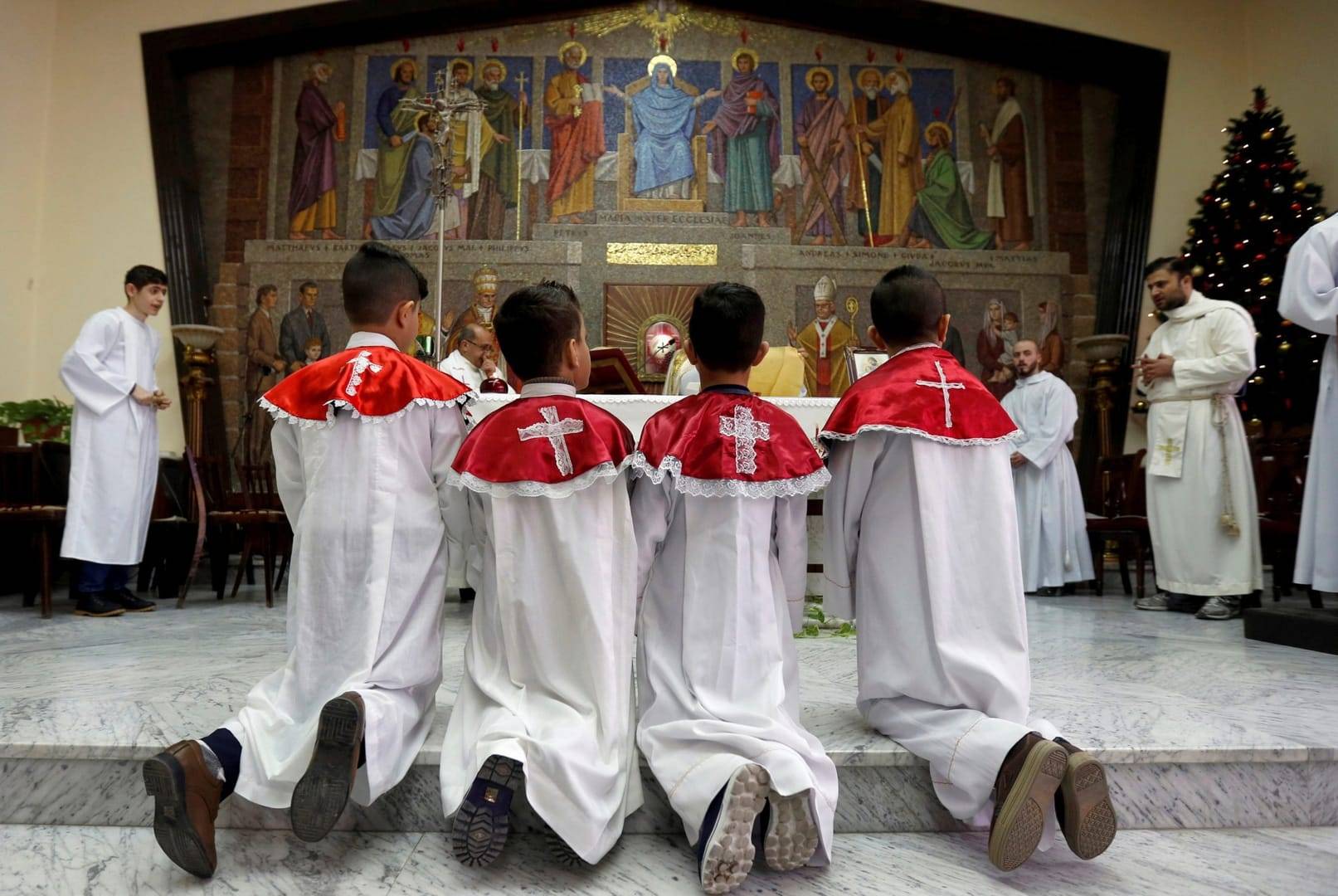QARAQOSH, Iraq – Mosul, a city in Iraq’s Nineveh Plains that’s both a crossroads of tolerance and a former stronghold of ISIS, did its best Sunday to show Pope Francis’ its former face, with a pristine red carpet and papal-white chairs that seemed made for the occasion.
In the former capital of the self-proclaimed Islamic caliphate, Francis reaffirmed the conviction that “fraternity is more durable than fratricide, that hope is more powerful than hatred, that peace more powerful than war.”
In particular, Francis expressed hope that the region’s struggling Christian minority will be able to hang on.
The “tragic diminution of Jesus’ disciples here and across the Middle East,” the pope said, “does incalculable harm not just to the individuals and communities concerned, but also to the society they leave behind.”
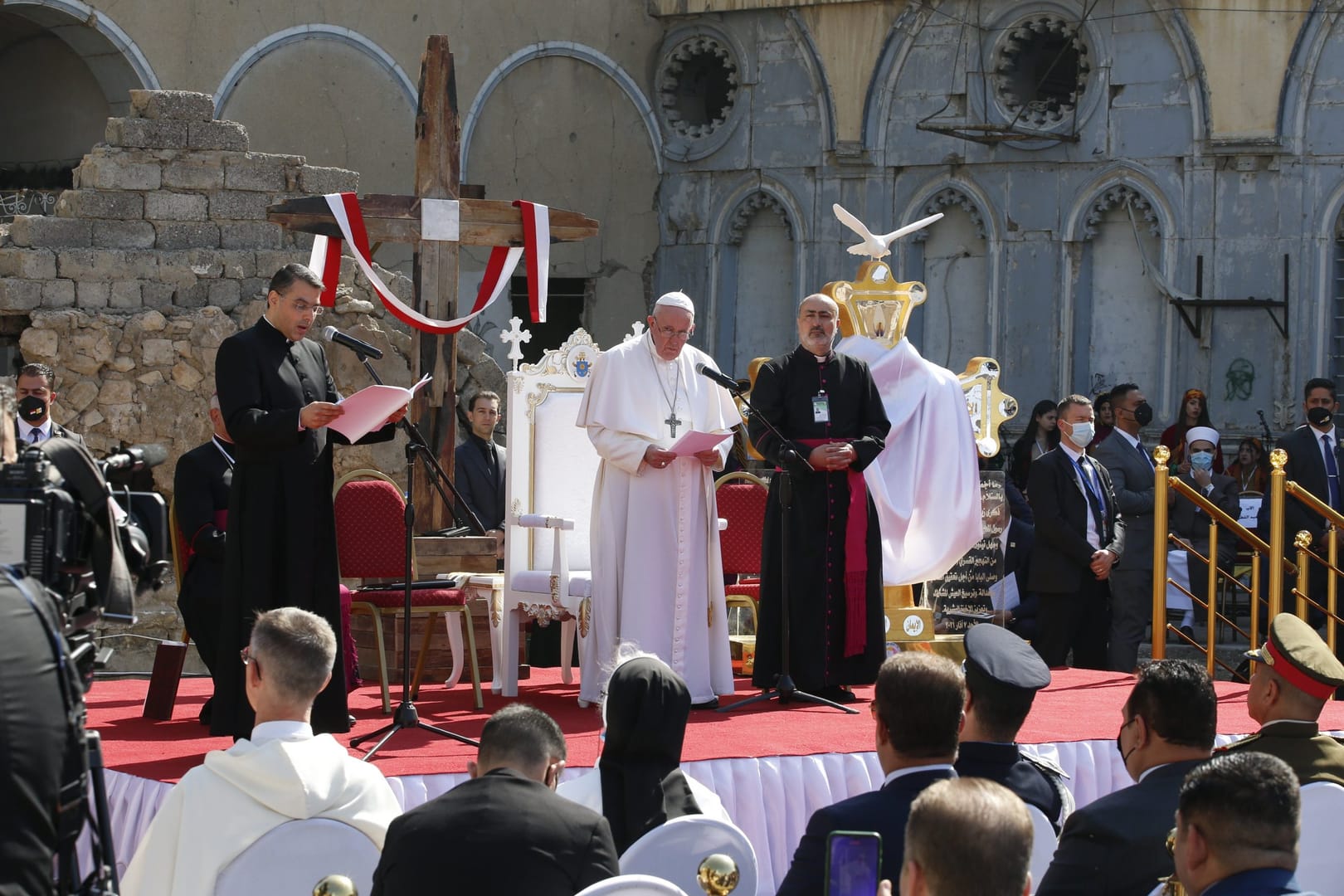
To God, he said, “we entrust all those whose span of earthly life was cut short by the violent hand of their brothers and sisters; we also pray to you for those who caused such harm to their brothers and sisters.
The stage set up at the Hosh al-Bieaa (“Church square”) in Mosul for the prayer all the victims of war was a stark contrast with the rubble-of-a-city that surrounded it: though efforts are being made to rebuild the city, removing the tons of rubble is a painstakingly slow process.
Francis had the opportunity to see the devastation from the sky during his helicopter ride from the nearby city of Erbil, capital of Kurdistan, where he was set to say Mass later in the day.
The Nineveh Plains, which overlaps the border between Iraq and Kurdish-held territories, is a conglomerate of small villages, many of them historically Christian: Teleskof, Batnaya, Bartella, Karamles, Qaraqosh, and others.
Mosul is the administrative capital of Nineveh, and for the past 2,500 years it has represented the pluralistic identity of Iraq. The rise of ISIS, and the war that followed, caused vast damage to the city’s skyline, destroying landmarks such as the Al-Hadba minaret of the Al-Nouri Mosque and the clock tower of the Church of Our Lady of the Hour, the first of its kind in the Middle East.
Francis defined the damaged structures as reminders of the “perennial human desire for closeness” to God. The clock, he added, “for more than a century has reminded passers-by that life is short and that time is precious.”
With the help of private NGOs such as the papal organization Aid to the Church in Need, the Knights of Columbus and the Hungarian government, thousands of Christian families have been able to go home after the region was liberated last October.
The mosque and the church are being rebuilt through the UN-sponsored program “Revive the Spirit of Mosul,” financed by the United Arab Emirates. This is a concrete result of Pope Francis’ historic Declaration on Human Fraternity, which he signed in 2019 with the Grand Imam of al-Azhar, Cairo’s Sunni university.
UNESCO, which is leading the restoration efforts, defined Francis’ visit to as a “symbol of hope and an opportunity to join forces for peace and unity.”
The program is designed to foster dialogue with Christians and Muslims working together, restoring these two historic sites to their former glory.
A special adviser and head of the United Nations Investigative Team to Promote Accountability for Crimes Committed by ISIS welcomed the trip and the message it carries to all the communities, “who have severely suffered from the atrocities perpetrated by ISIS.”
Many countries, including the U.S., declared the crimes committed by this terrorist organization between 2014 and 2017 genocide.
“The pope’s visit to Iraq, his meetings with Iraqi religious leaders and the religious sites he is visiting carry a unifying message of peace and coexistence among all communities in Iraq, especially those who have suffered at the hands of ISIS from all faiths, including the Christians community,” said a statement released Friday, as the pope was landing in Baghdad.
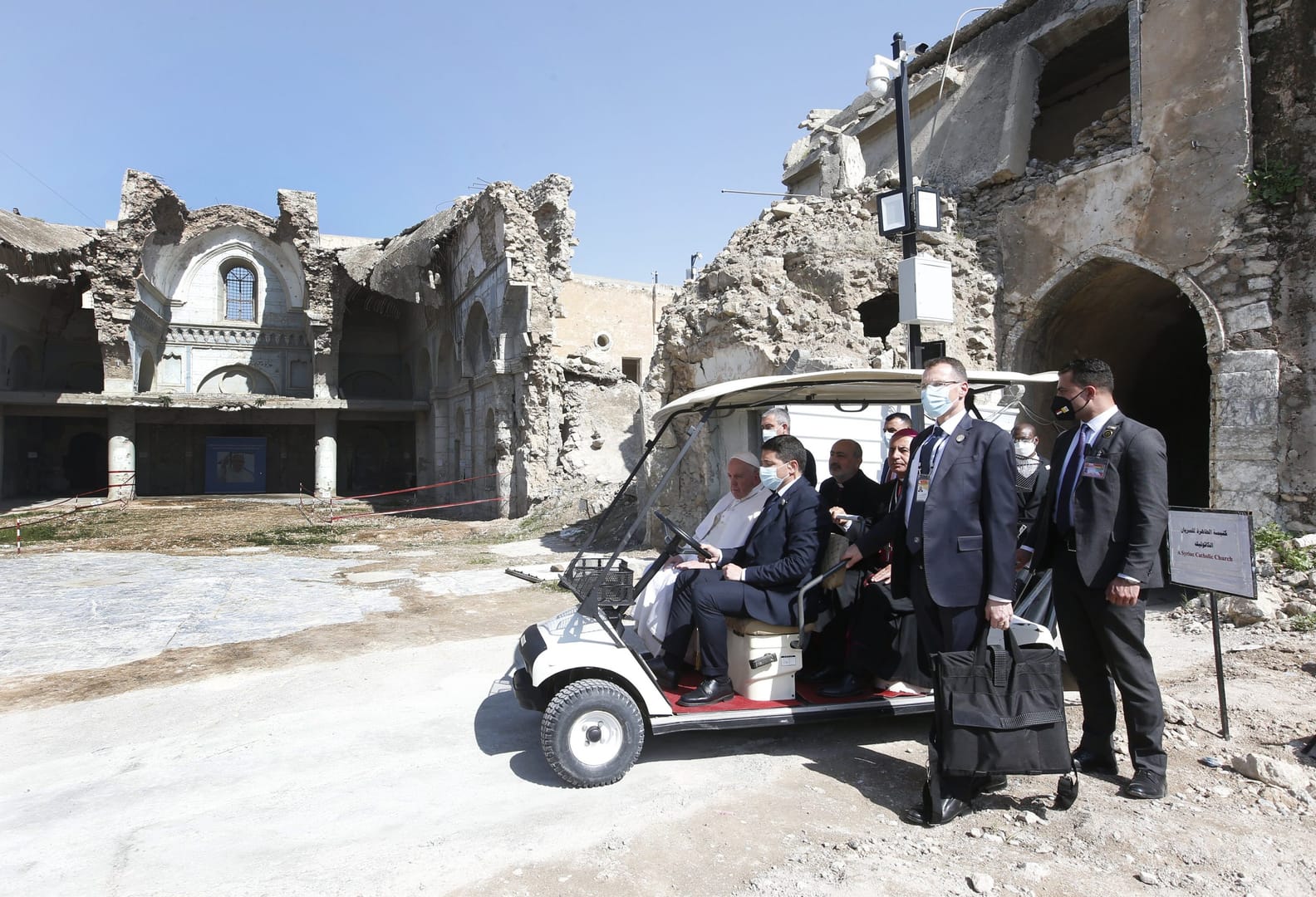
Before addressing a small group on Sunday, Francis heard the testimony of Father Raid Kallo of Mosul. When he fled the city on June 10, 2014, Kallo said, his parish numbered some 500 families. Most, if not all, he said, have fled: Many have left Iraq, while others are too afraid to go back.
“Christians here are no more than 70 families, but they live today in a city where there are two million Muslims who call me father Raid,” he said, after noting that since the liberation of the city, he has been invited to the Mosque to mark the feast of the birth of prophet Muhammad, a first ever.
Though the numbers vary, most estimates put the Christian population in Iraq at 1.5 million in 2003 before the U.S.-led invasion.
A Muslim man spoke of cooperation between Christians and Muslims in Mosul, and the pontiff thanked him for the invitation he issued to the Christian community to return home.
“Today we raise our voices in prayer to Almighty God for all the victims of war and armed conflict,” Francis said. “How cruel it is that this country, the cradle of civilization, should have been afflicted by so barbarous a blow, with ancient places of worship destroyed and many thousands of people – Muslims, Christians, Yazidis and others – forcibly displaced or killed!”
During the prayer, Francis shared three thoughts with those present: “If God is the God of life – for so he is – then it is wrong for us to kill our brothers and sisters in his Name. If God is the God of peace – for so he is – then it is wrong for us to wage war in his Name. If God is the God of love – for so he is – then it is wrong for us to hate our brothers and sisters.”
Follow Inés San Martín on Twitter: @inesanma







